Water System Static Trap
Sam wrote:
About five years ago, I was irrigating
a field with aluminum sprinkler pipe
and well water. After irrigating the field for
about two months, I noticed
a clear, jelly-like substance forming at the
end of the last sprinkler pipe.
I didn't know what the material was, but when
I put my finger in it, it
tasted sweet.
I have thought up a trap design based on Sam's
observations. I understand that his sprinkler pipes were configured somewhat
like this:
_____________|_____________________________|______________
___________________________|______________________/_______|
This "drawing" represents two sections of pipe the
upright lines in the center top of each section of pipe represents the
sprinkler stand pipes which the sprinklers are attached to. The slash mark
toward the end of the right pipe would represent the boundary between ordinary
water and the m-state water.
Since there is a dead space at the end of the right
pipe section where water does not flow this would provide a comfy space
for the ORMUS elements to collect. They seem to like aluminum in the first
place and they like to remain stationary in relation to magnetic fields.
This dead space at the end would fill both of those requirements. The alternative
route for them to travel is out through a spinning sprinkler head. This
arrangement fills all of the requirements of a magnetic trap.
Static Trap Design
My trap design has water coming into a cross tee and
leaving one leg of the cross tee through a plastic pipe which has a spiral
of magnetic tape wound around it. The other two legs of the cross tee lead
to a two foot long, large diameter section of pipe with a valve near the
tee and a drain plug at the other end. This configuration looks like this:
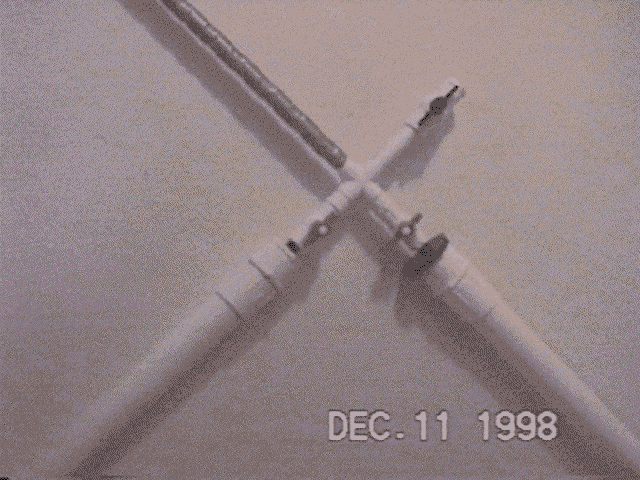
When this device is installed it will be horizontal.
The water main will enter from the upper right and
exit to the upper left.
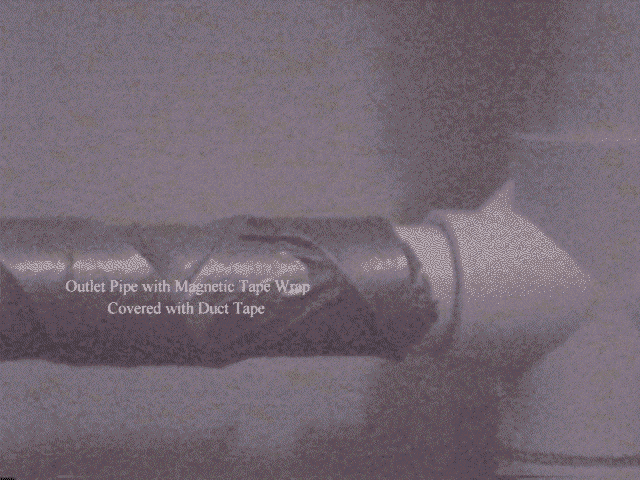
The exit pipe is spiral wrapped with magnetic tape
for about nineteen inches of length.
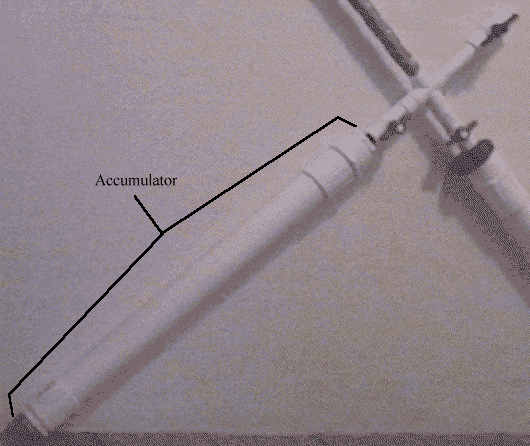
The two large pipes are the accumulators.
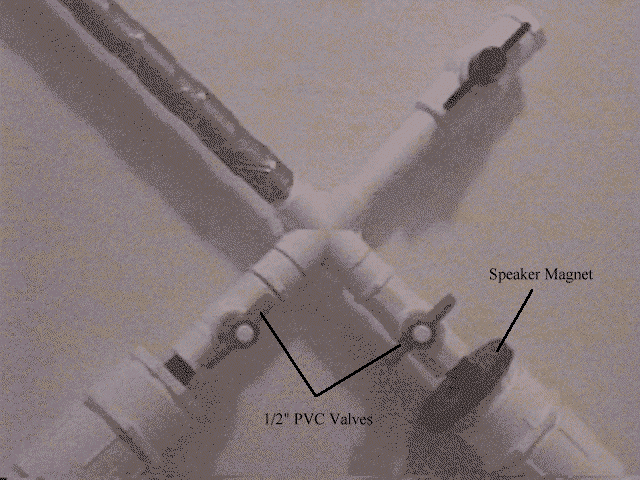
There are valves between them and the cross shaped
manifold.
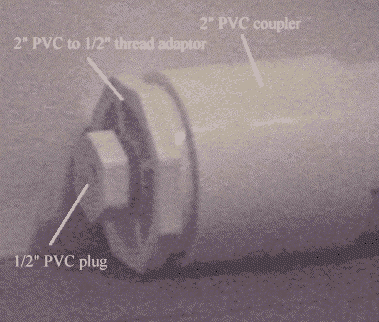
The m-state should collect in the large sections
of pipe.
These sections can be drained by closing the valve
and opening the drain plugs in the ends of the large diameter pipe.
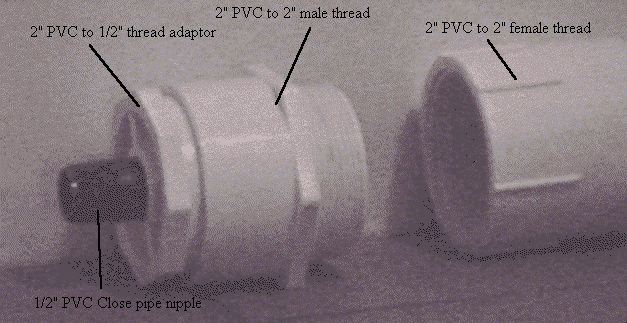
The large sections of pipe can be opened up so that
I can experiment with different fill materials.
Jim says that acrylic sweaters will absorb and hold
the m-state polywater quite well. He also claims that these elements have
an affinity for aluminum as does David Hudson. Being able to open up the
large pipe would allow me to try the trap for a while with an aluminum
lining and without or with and without it being stuffed with an acrylic
sweater.
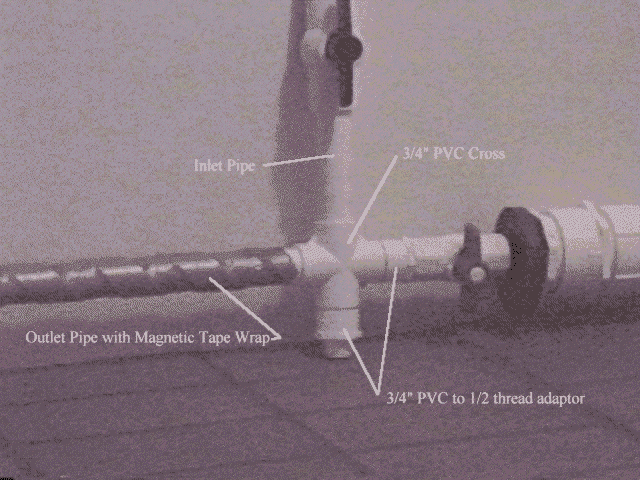
Cross Tee and adaptor detail.
PARTS LIST
|
Item
|
Number
|
| 1/2"
PVC Valve |
2
|
| 3/4"
PVC Cross |
1
|
| 3/4"
PVC to 1/2 thread adapter |
3
|
| 1/2"
PVC Close pipe nipple |
2
|
| 2"
PVC to 1/2" thread adapter |
4
|
| 2"
PVC to 2" female thread |
2
|
| 2"
PVC to 2" male thread |
2
|
| 2"
PVC coupler |
2
|
| 1/2"
PVC plug |
2
|
| 3/4"
pipe elbow |
1
|
| 3/4"
PVC Valve |
1
|
| 4
feet of 2" PVC pipe |
|






